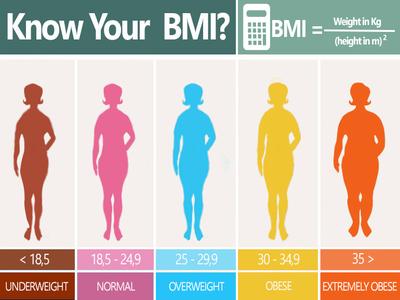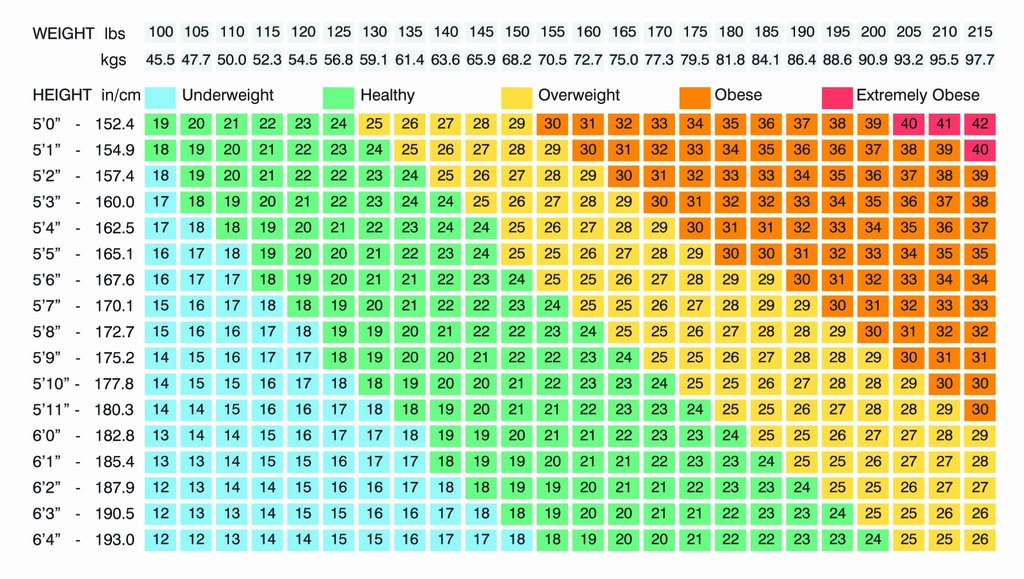
The BMI calculator is one of the most commonly used tools for determining a person's general health risks
The BMI formula uses your height and weight as the basis for the formula. However, the BMI formula isn't quite as precise as other body mass index calculations. For instance, it can indicate that you are slightly overweight based on information from an ultrasound, but that's just one piece of a larger whole.
It's also important to understand the BMI calculation can be misleading, especially if the data used to determine the BMI doesn't include the proper measurements of height and weight or if the person using the BMI calculator has a tendency to under-report or over-report their height and/or weight. This can lead to inaccurate data and a person getting incorrectly classified. You'll know this if there's a pattern to the results that you can't explain.
In order to accurately calculate your BMI, you'll need to know what your BMI is based on. In order to determine your BMI, you should first determine your age and height. If you've had a growth spurt in your body, you should also know this. Also, make sure that your parents and grandparents were able to give you a birth certificate. If they weren't able to, find out how they calculated your BMI and get some guidance on how to do the same thing.
Your BMI is calculated on your height and weight based on information about your body type. You can see your BMI by using a medical chart or on a BMI calculator found online. Once you have the information you need, you can find a BMI calculator used for your height and weight and then use this to get a more accurate estimate of what your BMI may be based on.
The BMI formula is used to determine what your body is considered to be in relation to your age, sex, height, weight, and many other factors. You should try to get a number that is close to your actual BMI. This will help you determine if you need to work on improving your diet and exercise or if you might need to do some type of physical therapy.

There are a lot of things you can do to improve your BMI. One of the first things you can do is to take a walk every day and increase your activity level. You can increase your calories burned by doing some form of exercise. Doing something fun, like running, aerobics, playing basketball, or sports, or swimming can increase your metabolism which will cause you to burn more calories.
To lose weight, you might want to change some of your dietary habits. By cutting back on your saturated fats, sugars, high salt and saturated carbohydrates you can lower your BMI significantly. Changing your eating habits can reduce your risk of diabetes and heart disease and can also improve your general health.
There's no one size fits all approach to achieving the best BMI
Be sure you follow the recommendations of your doctor or health care professional and do your homework before beginning any diet or exercise program.
Many people are confused when it comes to how to calculate their BMI. They wonder how to figure out their BMI, whether they need to go on a diet or exercise program or if they should just wait and see how their body changes. You might be concerned about the possible health risks of changing your diet and exercise habits. However, changing your diet and exercise can provide many benefits to your overall well being.
You can learn a lot about your BMI by visiting your local library or health center. Books and magazines are not as helpful since they are not focused on people who are trying to lose weight and they tend to focus on the medical issues rather than the lifestyle choices that can affect your BMI.
Health and fitness magazines will often tell you about the best way to reach your weight loss goals and what you can do to achieve it. There are several books available for download that contains a wealth of information on the subject.

